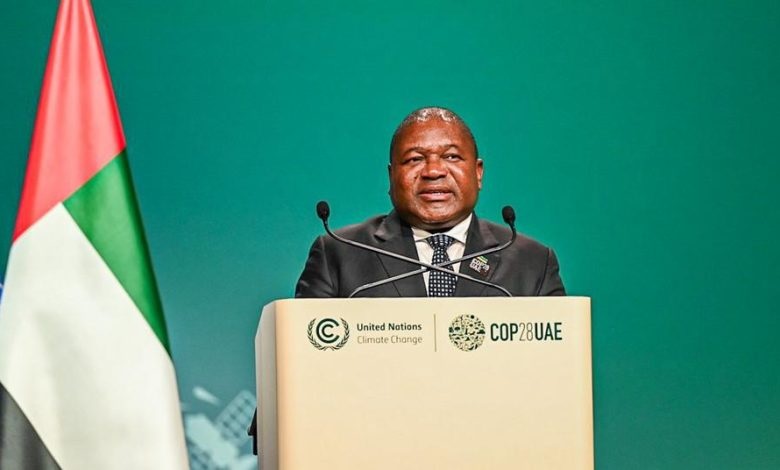Mozambique: Marc Stalmans, renowned ecologist and Director of Science at Gorongosa National Park, ...
Mozambique in negotiations to sell carbon emission rights

Image: Domingo
Mozambique is in negotiations with some countries to sell carbon emission rights, President Filipe Nyusi said on Friday in his address to the Plenary Session of the United Nations Climate Change Summit, COP 28, in Dubai.
“Mozambique has joined the Africa Carbon Markets Initiative, and we have started to draw up a plan to activate the carbon market. We are in negotiations with some countries to sign an agreement to sell the results of reducing emissions,” said the head of state, highlighting that “Mozambique has great potential to generate carbon credits, especially in the forestry, agriculture, renewable energy and blue economy sectors.”
“In 2018, we were the first country to benefit from the certification of 1.9 million carbon credits. In terms of the use of renewable energy to produce electricity, in Mozambique around 70% of the energy produced comes from hydroelectric sources, 14 percent from natural gas, and 16% from other sources, especially solar energy,” Nyusi highlighted in the same intervention.
At COP28 in Dubai, Filipe Nyusi pledged Mozambican support for “innovative financing initiatives, such as debt conversion for climate action and access to concessional financing for developing countries”.
“As this is the first COP since the Paris agreement to take stock of the global situation in terms of climate change mitigation, we take the opportunity to urge the parties to honour their commitments to support countries that contribute little to greenhouse gas emissions but have limited domestic resources to finance climate action,” Nyusi said.
“We further urge the various governmental and non-governmental institutions to increase funding for research and technological innovation because with scientific knowledge, communities should know how best to adapt to climate change,” he insisted.
Mozambique is considered one of the countries most severely affected by climate change in the world, cyclically facing floods and tropical cyclones during the rainy season, which runs between October and April.
The 2018/2019 rainy season was one of the most severe in memory in Mozambique: 714 people died, including 648 victims of cyclones Idai and Kenneth, two of the biggest ever to hit the country.
In the first quarter of this year, intense rains and the passage of Cyclone Freddy caused 306 deaths, affecting more than 1.3 million people in the country and destroying 236,000 homes and 3,200 classrooms, according to government figures.
The United Nations has been insisting on the need to immediately adopt “spectacular measures” to prevent further global warming, now edging towards 2.9°C.
A UN report indicates that, to prevent a 3°C rise in temperatures by the end of the century, all countries will have to reduce emissions far beyond current promises, cutting 42% of emissions by 2030 if they want to stay within 1.5°C, a target assumed in 2015 in the Paris Agreement on reducing emissions.
The report was released days before the start of another UN climate summit (COP28), taking place until December 12 in Dubai, with the ambition of making the first global assessment of the Paris Agreement.












Leave a Reply
Be the First to Comment!
You must be logged in to post a comment.
You must be logged in to post a comment.